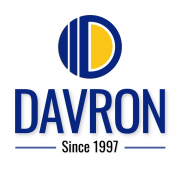To make your executive resume as relatable as possible, it should contain strong content and the right language.
This leadership document leaves no room for junior-level details, generic phrases, or lofty blanket terms. Increase the value of your resume by being specific, focused, and eliminating:
Phrases to Avoid: “responsible for…. “
why: Everyone has some responsibility in their work. Not only does this overused phrase do nothing to differentiate you from your competitors, it also shows no unique value. Additionally, recruiters aren’t interested in reading a long list of day-to-day duties on executive resumes.
Instead: Shift focus from task-heavy details and sleep-inducing “responsible” statements to more results-oriented, high-impact statements that shout “Look what I’ve accomplished!” This is what you can achieve too!” Clearly sell her ROI that employers can achieve by hiring you.
Phrases to Avoid: “Reference materials are available upon request. ”
why: This is a given. Estimate. Old-fashioned.
Instead: Leverage your key resume assets to share high-value content to support your candidacy.
Phrases to Avoid: Superlative expressions in clichés like “Innovative and goal-oriented team player” again “excellent communication skills”
why: These phrases may sound important, but really anyone can make a case. Resume readers need more concrete facts and figures to measure true leadership levels.
Instead: Share the tangible result of applying the selected skill. something like: “Increased sales by 12% by initiating increased daily communication with the top 10 largest customers across the region.”. This stern statement alludes to the ability of the chosen, attracts attention, and provides evidence of results.
Phrases/words to avoid: Vague claims of success: “result generator” again “reconstruction strategist”.
why: These claims may be true, but need supporting evidence. Again, proof of results and context of skill application are necessary for the reader of your resume to take the content seriously.
Instead: Help the reader measure competence by replacing vague claims of fame with value-enhancing statements such as:Achieved 3rd consecutive year of 17% year-on-year revenue growth after initiating new operational improvement process”.
Words to avoid: “the purpose”.
why: This archaic introduction is unlikely to support your claim, as it is unlikely to hit the mark. Your resume may be about you, but it’s not *meaning* for you.
Instead: Skip the purpose and start your resume with a strong headline or a metric-based summary that includes success stories. Employers are not interested in personal goals. They want to know what each of you is doing. they and their business.
Words to avoid: Misused/abused terms like “”rock star”.
why: Unless you’re a real rock’n’roll star, that’s an overstatement. It’s also very overused and doesn’t add any real context or value to resume content.
Instead: This word should only be considered if an employer specifically requests “Rockstar” in a job posting. Otherwise, use more appropriate leadership language to describe your abilities. Job postings are a good place to start if you’re looking for the right language.
Words to avoid: “seasoning”.
why: Using this word can sound delicious (like food) or old. Neither is for resume purposes.
Instead: Avoid generalizing your abilities, expertise, or years of experience, just explain. examination: “15 years of experience leading over 200 international teams“not:”Veteran team leader.






